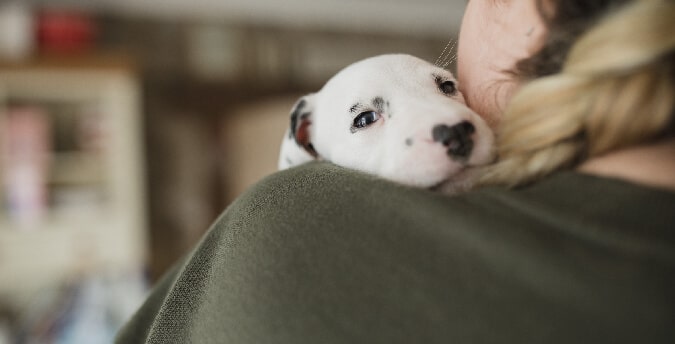How to Recognize Unethical Breeders

For those who prefer purebred dogs, buying a puppy from a breeder is a common practice. However, it’s important to get to know the breeder and their practices before committing to buying a puppy from them. As in any industry, there are unethical people who irresponsibly and inhumanely breed dogs for profit, and these actions are not to be encouraged. Therefore, we have developed a set of standards to look for to ensure that your puppy comes from a responsible and ethical breeder.
MAKE SURE THEY ARE REGISTERED
If a breeder is legitimate, they will have registered their dogs with the American Kennel Club or breed-specific organization. This is the equivalent of obtaining a birth certificate for a child. The AKC requires breeders to provide information on the parents of the litter and the breeders themselves so that they are able to keep track of transactions and bloodlines to ensure proper breeding practices. If a breeder is not registered with the AKC, it is likely they have not done their due diligence and are irresponsible. This could indicate any number of unethical practices. These could include mating two dogs without research or purpose, meaning that the two dogs are either related, have predispositions to certain inheritable diseases, or do not have suitable personalities. Non-registered litters are to be avoided, so be sure to verify that each kennel has the proper papers for your dog.
VISIT THE FACILITY
Another important factor is to see the breeding center itself to verify that your puppy will come from a place that you can support. If the breeder denies your request, that is a red flag and you should find somewhere else to buy a dog. One of the first things you should look for when visiting a facility is the health of the other dogs, most importantly the mother. If the mother of the puppies looks quite unhealthy, or the other dogs seem unhappy or ill, it’s time to question the breeder’s practices. You do not want your dog coming from a place that mistreats its dogs for the sake of profit, so be sure to look for signs of this. Moreover, look at the facility itself. If it is organized and seems to have an order to the maintenance of the dogs, it’s likely the breeder knows what they’re doing. However, if it is a mess and the puppies are kept in unfavorable conditions, this could be a sign that the breeder is inexperienced and therefore unqualified.
ASK QUESTIONS
Be sure to get the full scoop on how the breeder conducts their business. Know the research that went into selecting the parents, including the bloodlines and medical tests. Ask about how long they have been breeding dogs, how many breeds they specialize in (should be one), and how old they keep the dogs. If a breeder is giving away dogs that are 8 weeks old, that is a warning sign. Puppies should be kept until 10-12 weeks before being sold to ensure they’re in good health, have gotten their first round of vaccinations, and have been weaned. Knowing all of this will help you make an educated decision on where you buy your dog from, which will provide you with a healthy, registered dog that comes from a loving home.
